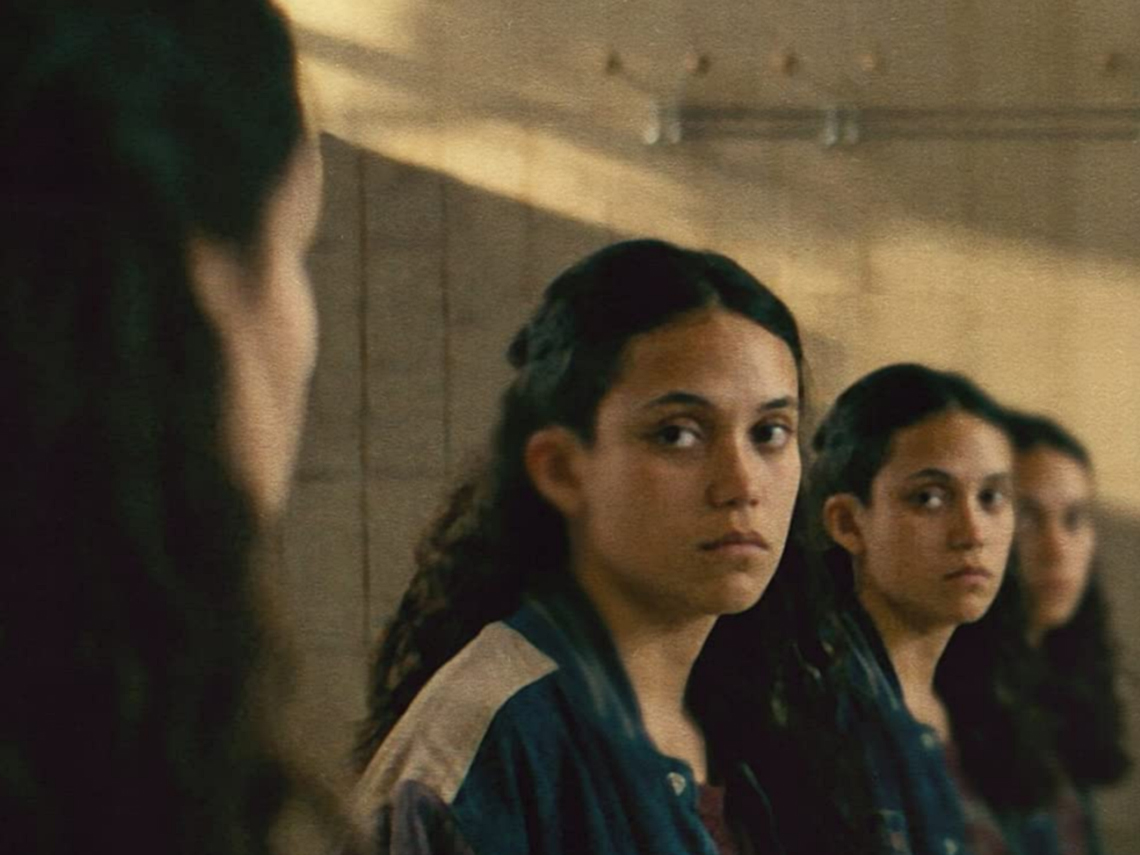
- Golden Globe Awards
Blanquita (Chile)
Chilean director Fernando Guzzoni’s fourth feature film, Blanquita, is probably his most successful one, for which he won the Horizons Award for Best Screenplay at the Venice Film Festival in 2022. The film, coproduced by Chile, Mexico, France, Luxembourg and Poland, has been invited to other important festivals such as Busan, Sao Paulo, Thessaloniki and Stockholm, and the Huelva Latin American Film Festival, where it took the main prize.
In the film, Laura López plays Blanca, an 18-year-old of humble origins who has suffered sexual abuse since she was a child, first by their own family and then by a group of very powerful men that kidnapped and drugged her for a long time. But now, with the help of Father Manuel (Alejandro Goic), she is ready to talk and send these criminals to jail. But when the priest learns that some of the stories Blanquita tells are untrue, he decides to keep going in his quest for justice, forcing the audience to wonder if he is doing the right thing.
Guzzoni, 39, started his film career in 2008 when he was 24 with a documentary, La Colorina, that depicted the poet Stella Diaz. Two years later, he was invited to participate in the residency of the Cinefondation of the Cannes Film Festival, where he developed the script of his first feature film, Dog Flesh, which debuted in 2012 at the San Sebastian Film Festival and won an important award at the Gothenburg Film Festival. This was his first collaboration with Goic, in a cast that also included notable actors such as Amparo Noguera and Alfredo Castro. His next film, Jesus, aimed even higher, opening in 2016 at the Toronto Film Festival and screening at San Sebastian. The film also had Goic in its cast.
Regarding Blanquita, the director explained to GoldenGlobes.com in an email interview: “I believe the film shows how the press can handle issues of high social sensibility with frivolity and triviality. This is even more clear when they handle issues that generate arousal, taking sensationalistic positions in which the victims end up in the background.”
Guzzoni also talked about his work with newcomer López who is not a professional and didn’t even study drama. “I did very demanding work with her building her character. It was really interesting, as she had a natural talent, a touch of mystery and some minimalism that was something I was looking for. With Alejandro, we have a deep collaboration in which we talk about the characters from the moment I start writing. As a director, I was looking for characters with moral contradictions, such as an antihero who was searching for justice in a non-orthodox manner, with a lie, but as an answer to the impunity that is installed in the institutions, and a priest who is a social fighter but also a narcissist.”

